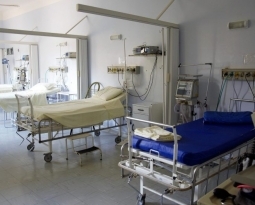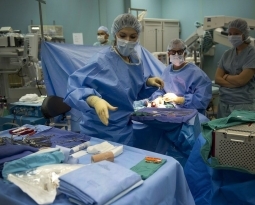Massachusetts Patent of the Month – September 2023
Imagine a world where we can predict and prevent organ dysfunction or failure, even before symptoms manifest. Pendar Technologies, LLC, a pioneer in medical technology, is bringing us closer to this reality with their groundbreaking invention – a method of monitoring patients through Raman spectroscopy. This cutting-edge technology has the potential to transform critical care medicine and perioperative surgery.
Traditional methods of assessing oxygen delivery (DO2) and mitochondrial function have limitations. Pendar’s invention offers a promising solution by measuring the mitochondrial redox state with incredible precision. This method involves quantifying the relative concentrations of various chromophores in real-time, providing valuable insights into tissue health.
One remarkable aspect of Pendar’s invention is its ability to predict impending organ failure based on a predefined threshold for mitochondrial redox state. By doing so, it allows for early intervention and treatment, potentially saving lives and improving patient outcomes.
This innovative technology is versatile, finding applications in various medical scenarios. During surgeries, it can assess tissue protection adequacy and predict tissue function post-reperfusion. It is especially valuable in cardiac procedures, such as bypass surgeries, where monitoring mitochondrial function can be critical.
This method can be used in organ transplant surgeries, ensuring the viability of the transplanted organ. Even in procedures involving skin grafts or flaps, it aids in assessing tissue health and functionality.
Pendar’s invention leverages Raman spectroscopy, specifically resonance Raman spectroscopy, to provide accurate measurements. It involves a laser excitation source, a biological probe, and a spectrometer, all meticulously calibrated to deliver precise results. The resonance Raman spectra generated offer insights into the redox state of whole mitochondria, hemoglobin and myoglobin oxygen saturation, and even the redox state of individual cytochrome complexes within mitochondria.
The potential impact of Pendar Technologies’ invention on patient care is immense. By enabling early detection of tissue dysfunction and offering real-time insights into mitochondrial health, this technology has the power to revolutionize critical care medicine and surgery.
Are you developing new technology for an existing application? Did you know your development work could be eligible for the R&D Tax Credit and you can receive up to 14% back on your expenses? Even if your development isn’t successful your work may still qualify for R&D credits (i.e. you don’t need to have a patent to qualify). To find out more, please contact a Swanson Reed R&D Specialist today or check out our free online eligibility test.
Who We Are:
Swanson Reed is one of the U.S.’ largest Specialist R&D tax advisory firms. We manage all facets of the R&D tax credit program, from claim preparation and audit compliance to claim disputes.
Swanson Reed regularly hosts free webinars and provides free IRS CE and CPE credits for CPAs. For more information please visit us at www.swansonreed.com/webinars or contact your usual Swanson Reed representative.

















